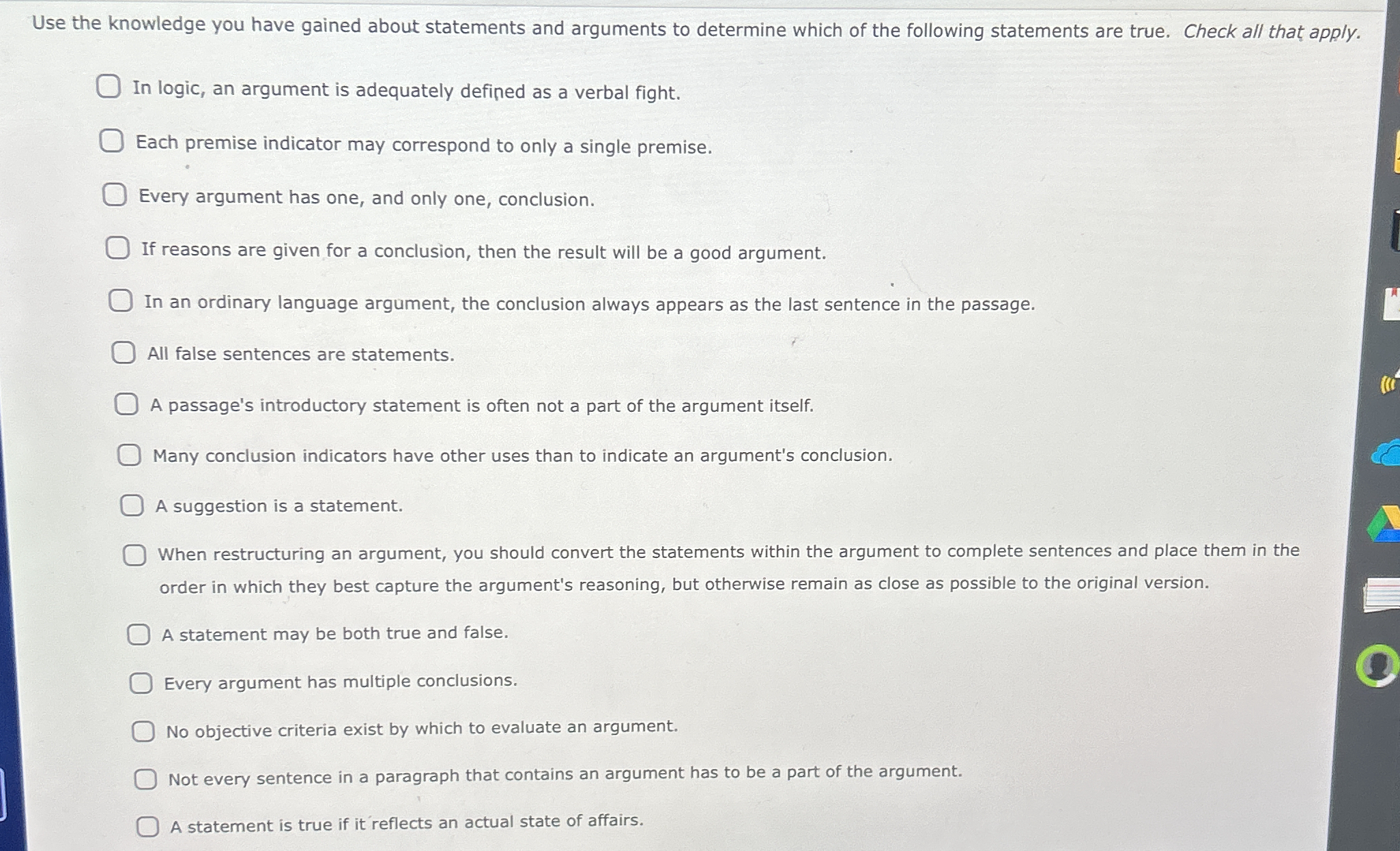Use the knowledge you have gained about statements and arguments to determine which of the following statements are true. Check all that apply.

Understand the Problem
The question is asking us to analyze a series of statements related to logic and arguments to determine which of them are true. This involves understanding the principles of logical reasoning and the structure of arguments.
Answer
True statements: single conclusion in arguments, conclusion indicators have other uses, false sentences as statements, not all sentences needed in arguments, true statement reflects reality.
The true statements from the provided list are:
- Every argument has one, and only one, conclusion.
- Many conclusion indicators have other uses than to indicate an argument's conclusion.
- All false sentences are statements.
- Not every sentence in a paragraph that contains an argument has to be a part of the argument.
- A statement is true if it reflects an actual state of affairs.
Answer for screen readers
The true statements from the provided list are:
- Every argument has one, and only one, conclusion.
- Many conclusion indicators have other uses than to indicate an argument's conclusion.
- All false sentences are statements.
- Not every sentence in a paragraph that contains an argument has to be a part of the argument.
- A statement is true if it reflects an actual state of affairs.
More Information
Understanding arguments involves recognizing indicators and distinguishing between necessary and unnecessary sentences within a passage.
Tips
Avoid assuming every sentence contributes directly to an argument, and note that false sentences can still constitute statements.
AI-generated content may contain errors. Please verify critical information